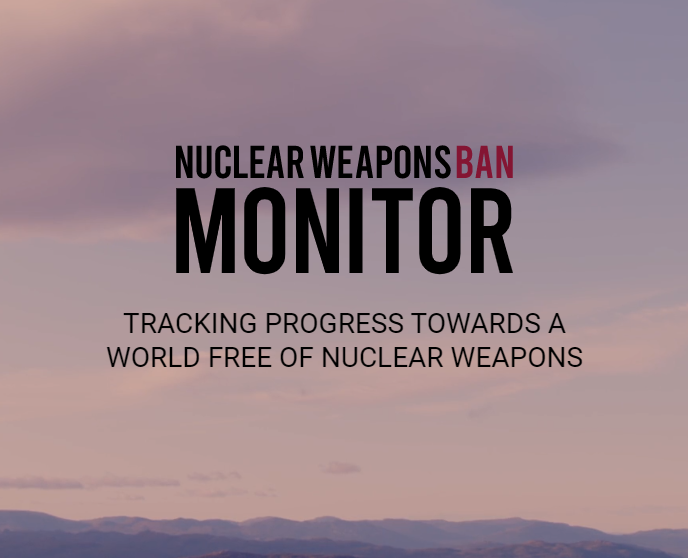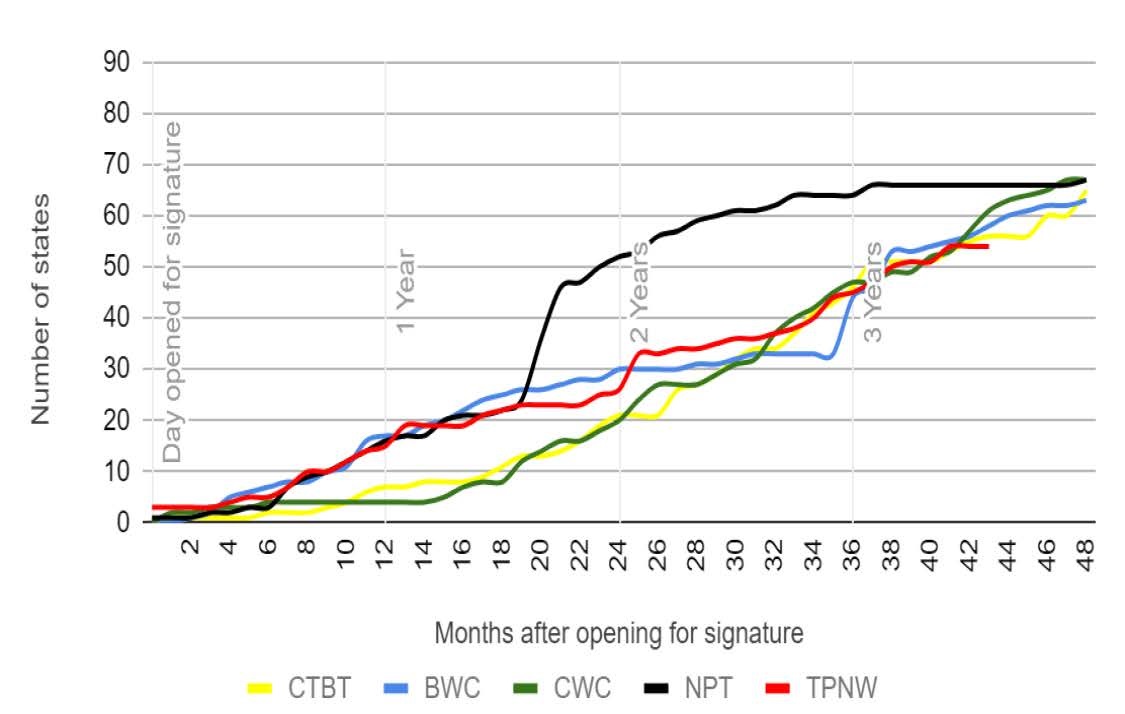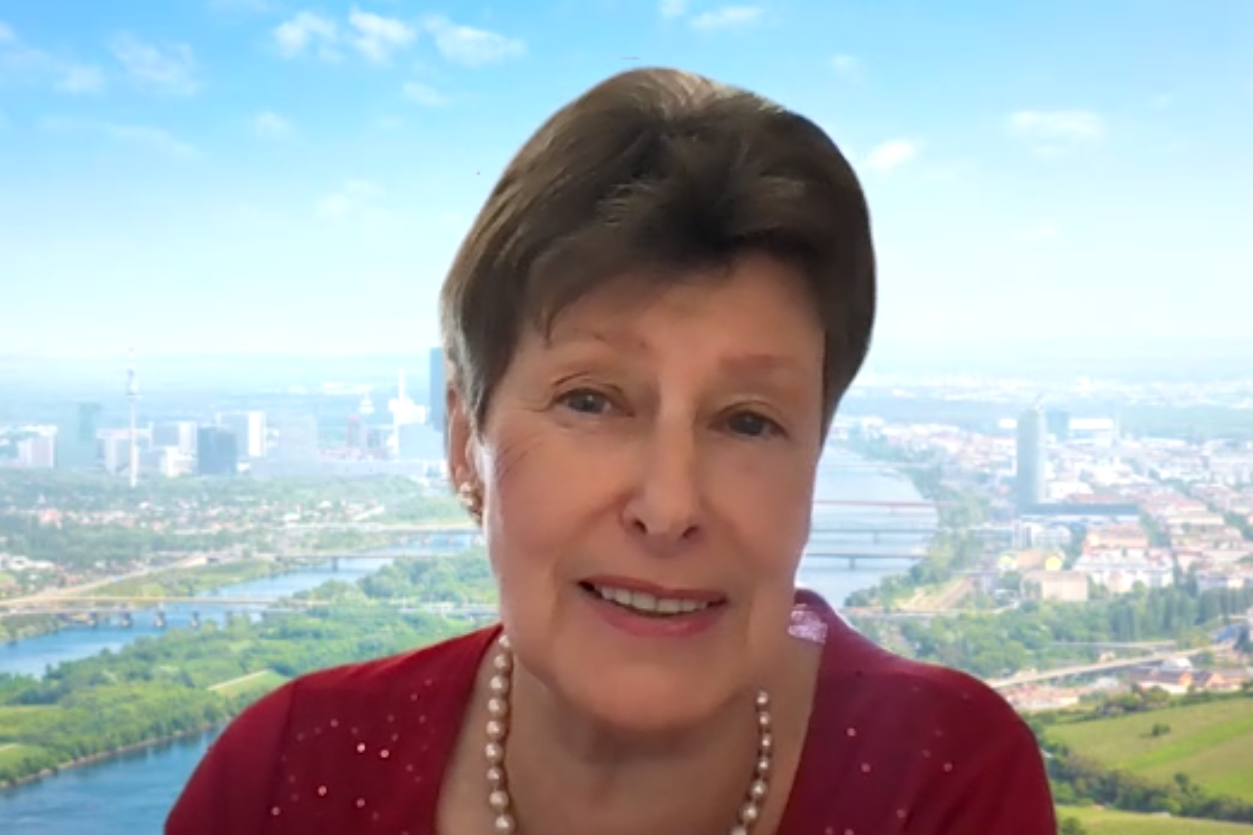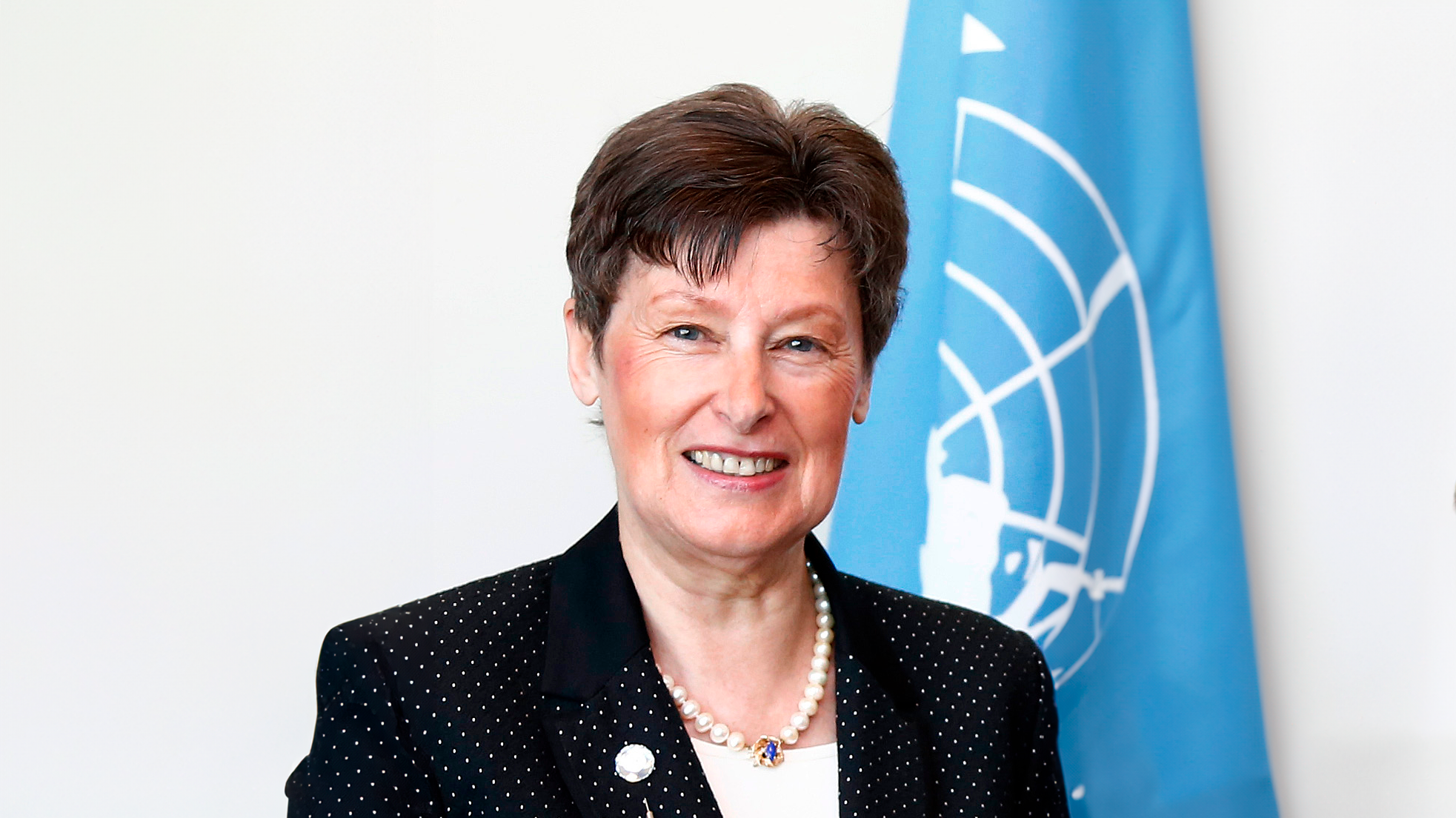
On 8 April 2021, the VCDNP hosted the launch of the 2020 edition of the Nuclear Weapons Ban Monitor in cooperation with the Permanent Missions of Austria, Ireland, and New Zealand. The Nuclear Weapons Ban Monitor, a research programme established in 2018 by Norwegian People’s Aid, tracks progress towards the universalization of the Treaty on the Prohibition of Nuclear Weapons (TPNW), as well as states’ adherence to its provisions.
Ambassador Alexander Kmentt (Austria), Ambassador Eoin O'Leary (Ireland), and Ambassador Nicole Roberton (New Zealand) delivered opening remarks. Managing Editor of the Nuclear Weapons Ban Monitor Grethe Østern, Honorary Professor at the University of Pretoria Stuart Casey-Maslen, and Associate Director/Lecturer at the International Human Rights Clinic at the Harvard Law School Bonnie Docherty presented the main findings and conclusions of the 2020 Ban Monitor. VCDNP’s Director of the International Organizations and Non-Proliferation Program Gaukhar Mukhatzhanova moderated the discussion.

Ambassador Alexander Kmentt, President-designate of the first Meeting of States Parties to the TPNW, provided an update on the preparations for the meeting, which is scheduled to take place in Vienna in January 2022. He emphasized the need to focus on the treaty implementation and highlight its humanitarian underpinnings. Ambassador Nicole Roberton stressed the role of civil society in monitoring the implementation of international treaties, particularly the TPNW. Ambassador Eoin O'Leary outlined that the TPNW strengthens the Treaty on the Non-Proliferation of Nuclear Weapons (NPT) in at least two ways: by providing a framework for the implementation of Article VI (disarmament) of the NPT, and by reaffirming the International Atomic Energy Agency's safeguards system.
Ms. Østern reviewed the status of signatures and ratifications of the TPNW as well as the state of general support for the treaty among all states eligible to join it. The TPNW entered into force on 22 January 2021. As of April 2021, 54 states had ratified or acceded to the TPNW while another 34 states had signed it. Adding the states that had not yet signed the TPNW but voted in favour of the UN resolutions endorsing the treaty, the Monitor found that 70% of states are supportive of the TPNW. Ms. Østern observed that the TPNW’s speed of ratification and accession has on average been the same as for other treaties on weapons of mass destruction. Ms. Østern emphasized that we are approaching a situation where half of all states will have accepted binding obligations in international law under the TPNW, as states parties or signatories.
Ms. Østern noted that of the 197 states reviewed by the Monitor, a majority of 156 states had excluded any role for nuclear weapons in their security policies, while 41 states based their security strategies on the possession and potential use of nuclear weapons. Europe continued to be the region with the highest proportion of states whose policies are not compatible with the TPNW provisions.

Mr. Casey-Maslen discussed in greater detail the compatibility of states’ policies with the prohibitions contained in Article I of the TPNW, including the prohibitions on possession, production, stockpiling, acquisition, transfer, testing, use and threat of use, and assistance in prohibited activities. All nine nuclear-armed states engaged in conduct in 2020 that was not compatible with the TPNW’s prohibitions on possession, development, production, stockpiling, manufacturing, and acquisition of nuclear weapons, while 36 states’ – including US and Russian allies – policies were incompatible with the prohibition on assistance, encouragement and inducement in prohibited activities. Both Iran and Saudi Arabia were named as states of proliferation concern in the context of the prohibition on the development and production of nuclear weapons.
Mr. Casey-Maslen also reviewed the status of declarations pursuant to Article II of the TPNW, noting that 42 states parties had submitted their declarations on time, while seven states were late, and one state party had still not submitted their declaration. Article II requires states parties to submit declarations of whether they currently or have in the past possessed or controlled nuclear weapons or other explosive devices, or if they currently have foreign nuclear weapons on their territory.

Ms. Docherty discussed positive obligations under the TPNW regarding victim assistance and remediation of the environment affected by the use and testing of nuclear weapons. She noted that the harm from nuclear weapons use and testing were under-communicated and under-addressed and emphasized the need to conduct a global survey of harm and the associated needs for victim assistance and environmental remediation.
The 2020 edition of the Nuclear Weapons Ban Monitor also provides recommendations for the first Meeting of States Parties, including on setting the deadlines for the elimination of nuclear weapons programmes and removal of third-party nuclear weapons, and beginning consideration of a competent authority for nuclear disarmament verification. The next edition of the monitor is planned to come out in time for the first Meeting of States Parties.




By continuing to use the site, you agree to the use of cookies. more information
The cookie settings on this website are set to "allow cookies" to give you the best browsing experience possible. If you continue to use this website without changing your cookie settings or you click "Accept" below then you are consenting to this.